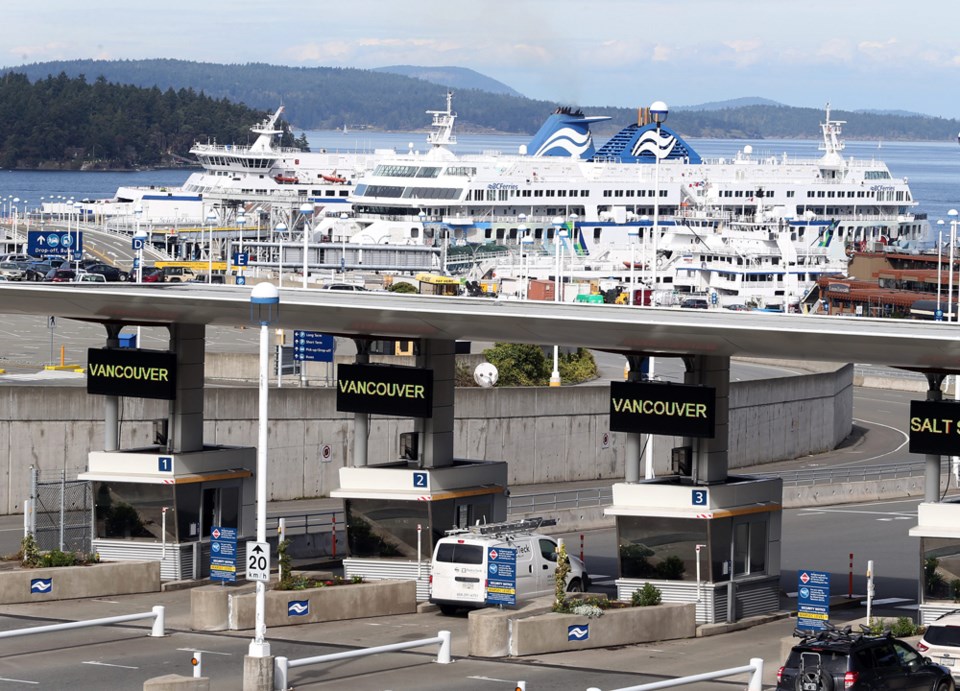B.C. Ferries has started screening passengers for COVID-19 symptoms or recent international travel before allowing them to board.
Anyone who has specific symptoms — including a fever, cough and difficulty breathing — or who has been refused boarding in the past 14 days due to a COVID-19 related medical reason will be denied boarding, said B.C. Ferries spokeswoman Deborah Marshall.
Islanders returning from abroad will still be able to ride the ferries as long as they don’t have symptoms.
“If you are travelling home and have not been tested positive and [are] not presumptive, are not exhibiting fever and a cough, fever and breathing difficulty, then you can travel,” Marshall said.
The company will put up posters at terminals showing the screening questions, and ticket agents can make sure passengers understand the questions being asked, she said.
Transport Canada announced new measures on Sunday regulating commercial passenger vessels and ferries aimed at reducing the risk of spreading COVID-19. The order includes guidelines that health checks should be conducted where feasible on every passenger for trips longer than 30 minutes.
Marshall said B.C. Ferries was already doing many of things Transport Canada is now requiring. “The missing piece was just the screening.”
The Transport Canada order also requires operators to reduce the maximum number of passengers by 50 per cent or implement other measures to reduce the risk of COVID-19, such as keeping passengers in their vehicles and adopting enhanced cleaning measures.
B.C. Ferries has seen about an 80 per cent drop in passengers due to COVID-19, and even with significantly reduced sailings, vessels are operating below 50 per cent capacity, Marshall said. The company has also stepped up cleaning and disinfecting efforts.
B.C. Ferries has asked passengers to avoid non-essential travel, in line with guidance from public health officials.
The order prohibits all commercial marine vessels that can carry more than 12 passengers from engaging in any non-essential activities, such as recreation and tourism, until at least June 30.
Canadian cruise ships are prohibited from sailing in Canadian Arctic waters until Oct. 31. Foreign passenger vessels wanting to enter Arctic waters will need to give the minister of transport 60 days notice and meet certain conditions. The measures are intended to protect northern communities with limited public health capacity.
In the rest of the country, the start of the cruise ship season is postponed from April 2 to July 1 at the earliest.



